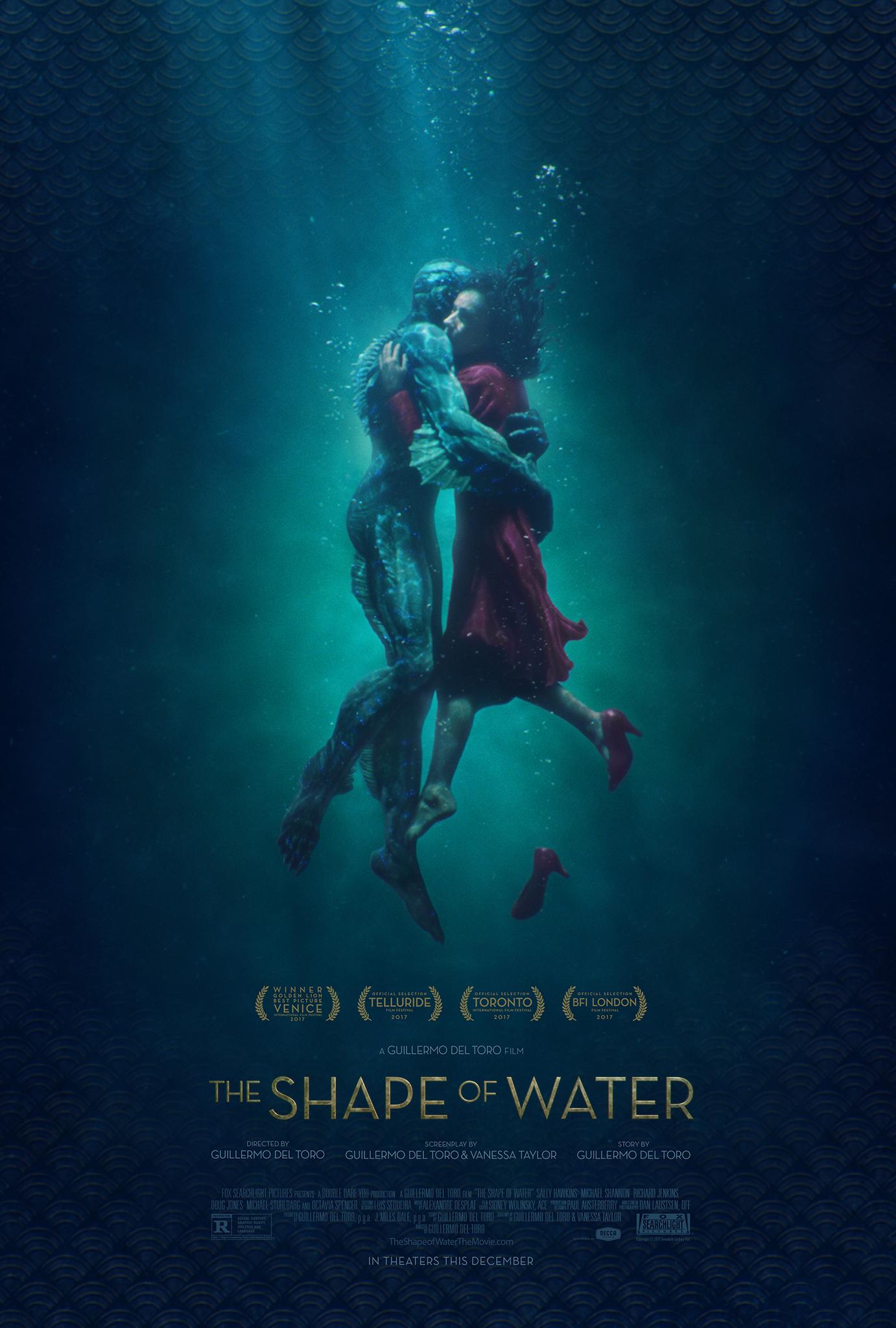
‘The Shape of Water’ Movie Review
The Shape of Water ought to go down as a quintessential example of the contemporary Western society’s soakage in the dredges of Christian history, wherein the concept of mankind is rejected and vilified in a film-noir setting. Yet it must be said that we have another splendid example of the marquee art direction, cosmetics, and wardrobe that can only be bestowed for artistry through the mass markets thirst for higher forms of sensuality. There will always be this price, in other words, for advancing the arts of theatrical production at the expense of humanistic, challenging, works. There was the hope that this film would have utilized these advancements for the better, but this dream was nothing short of a nightmare.
Despite my prejudices, it is downright tiresome to crassly and therefore inaccurately portray the social relations of a bygone era so often. Gone are the efforts at painting Shakespearean characters onto the cinema; instead they are brutishly, templated caricatures of a hollow political persuasion which sees the American man as the incarnation of sinfulness. While being able to represent a myriad of characters to add shades of grey onto the screen, Mr. Guillermo del Toro however opts to make his film painfully stupid with his thesis: what is good and beyond man is a subhuman species.
Clearly the contradiction is not on the forefront of his mind. For he may not consider a male mermaid (“merman”) to be below humanity. But by the very nature of his film’s nature and its laws, it invariably is less evolved and more bestial. The equalization of beasts with men, and even further the celebration of sexual communion, is nothing short of astounding to witness actually being presented in mainstream culture. That yes, bestiality does occur and further, the female who mates with the creature adapts toward its standard of biology rather than the merman develop the techniques which have made mankind capable of annihilating species of animals (as it has historically). But, within the cultural appreciation of the death of the Christian God and the expiring morality, this pathological thesis is explainable.
Anti-humanism is categorically a Christian moralistic concept as predicated by the founding mythos. It is an atypical cultural value in recorded history. As such, the virtues of meekness which again shade the social relations of viewing the dominant humans in society as sinful and unworthy of salvation – and, so happenstance the 1950’s era depicts this class of humanity thoroughly consistently with what the contemporary political Left scorns – births a deformed Christ, an in-cinema-quoted “god” as the worldly master and prime antagonist concedes, in an anthropomorphic aquatic creature that can barely survive without salt water. Again, though, this is what humanity ought to aspire to be according to del Toro – something which has the reckless proclivity of devouring a household pet when unattended. But Mr. del Toro’s standard of transcending human mortality is a decrepit one. It is one which values inhuman strength and violence; physical ability not spirituality.
What would spiritual ability look like? Poetically, I witnessed this film on Christmas Day. I can’t help but find the irony in the blind adoption of the moral zeitgeist which is hideously materialist and aimlessly antagonistic toward the standard of good set forth by Nature; and the historical person who moved humanity in such a counter-intuitive direction that his birth is worshipped and celebrated every year (Jesus). Peace is achieved through love and not through violence. If we are then going to imagine a champion of a higher being, we must avoid Mr. del Toro’s maladroit imagination like the plague.

